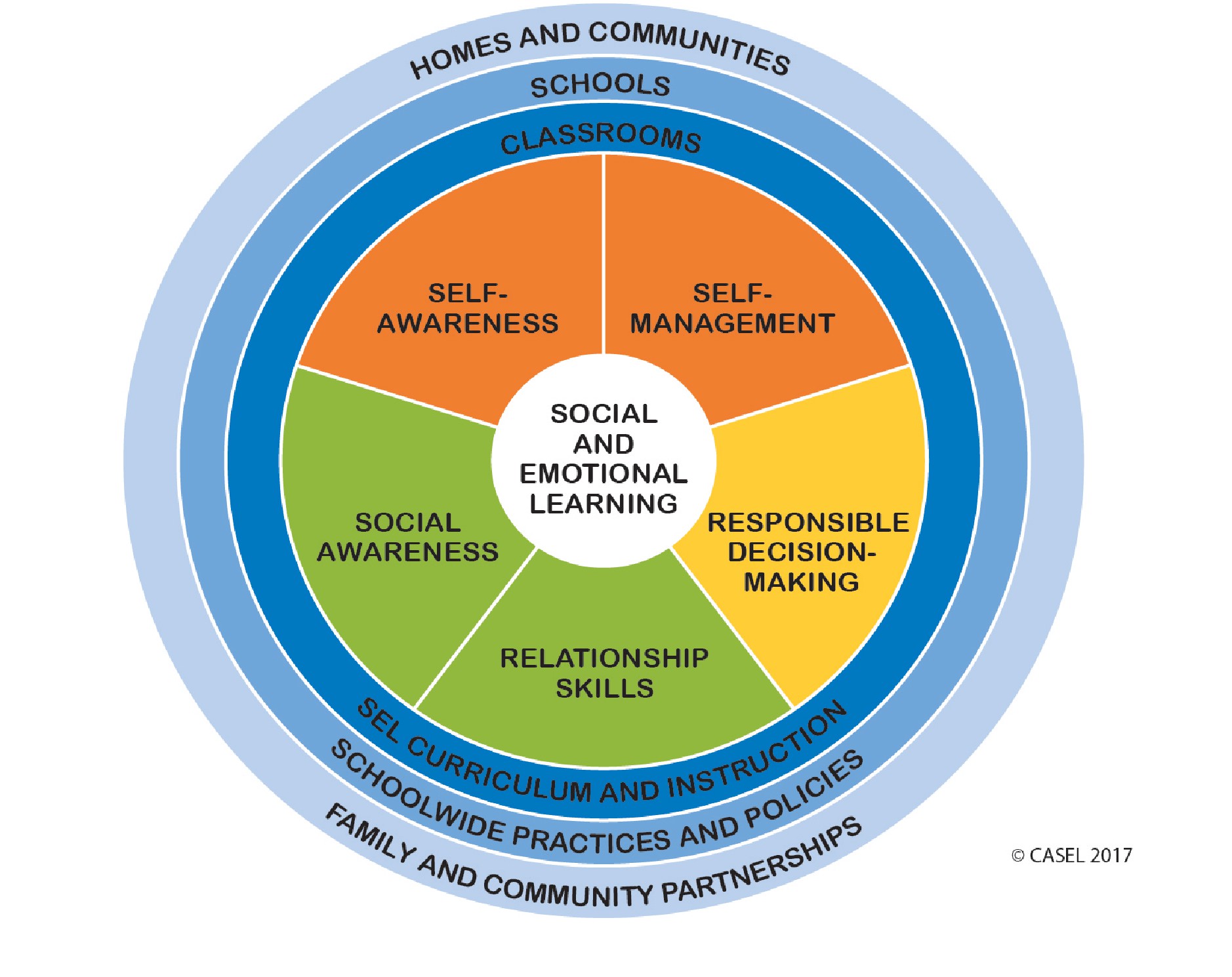Can Social Emotional Learning (SEL) help students succeed?
Social Emotional Learning (SEL) has become increasingly popular in recent years with more and more schools looking to introduce SEL based programs. The science behind the benefits of SEL were made popular by Daniel Goleman's best selling book, Emotional Intelligence and expanded upon in his follow up, Social Intelligence. Those SEL benefits include:
Increased positive attitudes toward oneself, others, and tasks including enhanced self-efficacy, confidence, persistence, empathy, connection and commitment to school, and a sense of purpose
More positive social behaviours and relationships
Reduced conduct problems
Less risk-taking behaviour
Decreased emotional distress
Improved test scores, grades, and attendance
What exactly is social-emotional learning?
The Collaborative for Academic, Social and Emotional Learning (CASEL) define SEL as follows:
"Social and emotional learning (SEL) is the process through which children and adults acquire and effectively apply the knowledge, attitudes, and skills necessary to understand and manage emotions, set and achieve positive goals, feel and show empathy for others, establish and maintain positive relationships, and make responsible decisions."
An ideal SEL structure provides for social and emotional learning opportunities not simply in the classroom, but also in the broader school, the home and broader community. CASEL have created an educational wheel to outline the five core competencies to be covered by SEL, which demonstrates the relationship between classrooms, schools, families and communities.
As outlined in the wheel above, social emotional learning focuses on teaching students self-awareness, self-management, social awareness, relationship skills and responsible decision making. But let's look at how these 5 core competencies translate into good outcomes for students.
Why is social emotional learning important for good education and life outcomes?
According to a meta-analysis of 213 studies involving more than 270,000 students, those who participated in evidence-based SEL programs, when compared to students who did not participate showed:
Showed an 11 percentile-point gain in academic achievement
Improved classroom behaviour
An increased ability to manage stress and depression
Better attitudes about themselves, others, and school
In addition a 2015 national study published in the American Journal of Public Health found associations between SEL skills in kindergarten and key social outcomes years later, including a decreased likelihood of:
Living in or being on a waiting list for public housing
Receiving public assistance
Having any involvement with police before adulthood
Ever spending time in a detention facility
Social Emotional Learning and Passion Arena
In understanding the importance of social emotional skills to education success, Passion Arena is structured to support social emotional learning, along with the wider range of non-cognitive habits and skills covered in our program.
While SEL is not our core focus, the 5 key competencies covered in CASEL's framework above, are all integrated within our broader programme content. This includes underlying habits such as, Know Thyself, Be Curious, Growth Mindset, Stretch, Positive Attitude, Self-Control, Quiet and Giving. Specific skills covered include; understanding and increasing happiness, developing willpower, building self-awareness and self-confidence, having empathy, improving relationships, having gratitude, and positive thinking.
Furthermore, Passion Arena's framework is designed to not only make it easy to introduce and teach these skills in a classroom environment, but teachers are provided additional resources to further their understanding and engage with students at a school level. Finally, parent pages relating to each episode are available for teachers to easily share, so that class discussions can be easily engaged and expanded on in the home.
Watch a Passion Arena episode relating to social emotional learning
To get an idea of how we introduce our non-cognitive skills and, in particular SEL related skills to students, click the button below to watch a Passion Arena episode that relates to empathy.
Want to find out more about social emotional learning?
Books on social-emotional learning:
If you'd like to dive further into understanding SEL, we recommend the following books. Click on the titles for more information.
Video on social emotional learning:
Here's Daniel Goleman talking about the value of social emotional learning.
Academic papers on social-emotional learning:
The academic papers below are only a few relating to social emotional learning. While we hope the studies below prove useful, if you have a specific area of SEL you want to address, we recommend searching Google Scholar.
Early Social-Emotional Functioning and Public Health: The Relationship Between Kindergarten Social Competence and Future Wellness
Authors: Damon E. Jones, PhD, Mark Greenberg, PhD, and Max Crowley, PhD. First Published February 2015
The Impact of Enhancing Students’ Social and Emotional Learning: A Meta-Analysis of School-Based Universal Interventions
Authors: Joseph A. Durlak, Roger P. Weissberg, Allison B. Dymnicki, Rebecca D. Taylor, and Kriston B. Schellinger. First Published: January 2011
The Relationships Between Social Intelligence, Empathy, and Three Types of Aggression
Authors: Ari Kaukiainen, Kaj Björkqvist, Kirsti Lagerspetz, Karin Österman, Christina Salmivalli, Sari Rothberg, and Anne Ahlbom. First Published 1999






